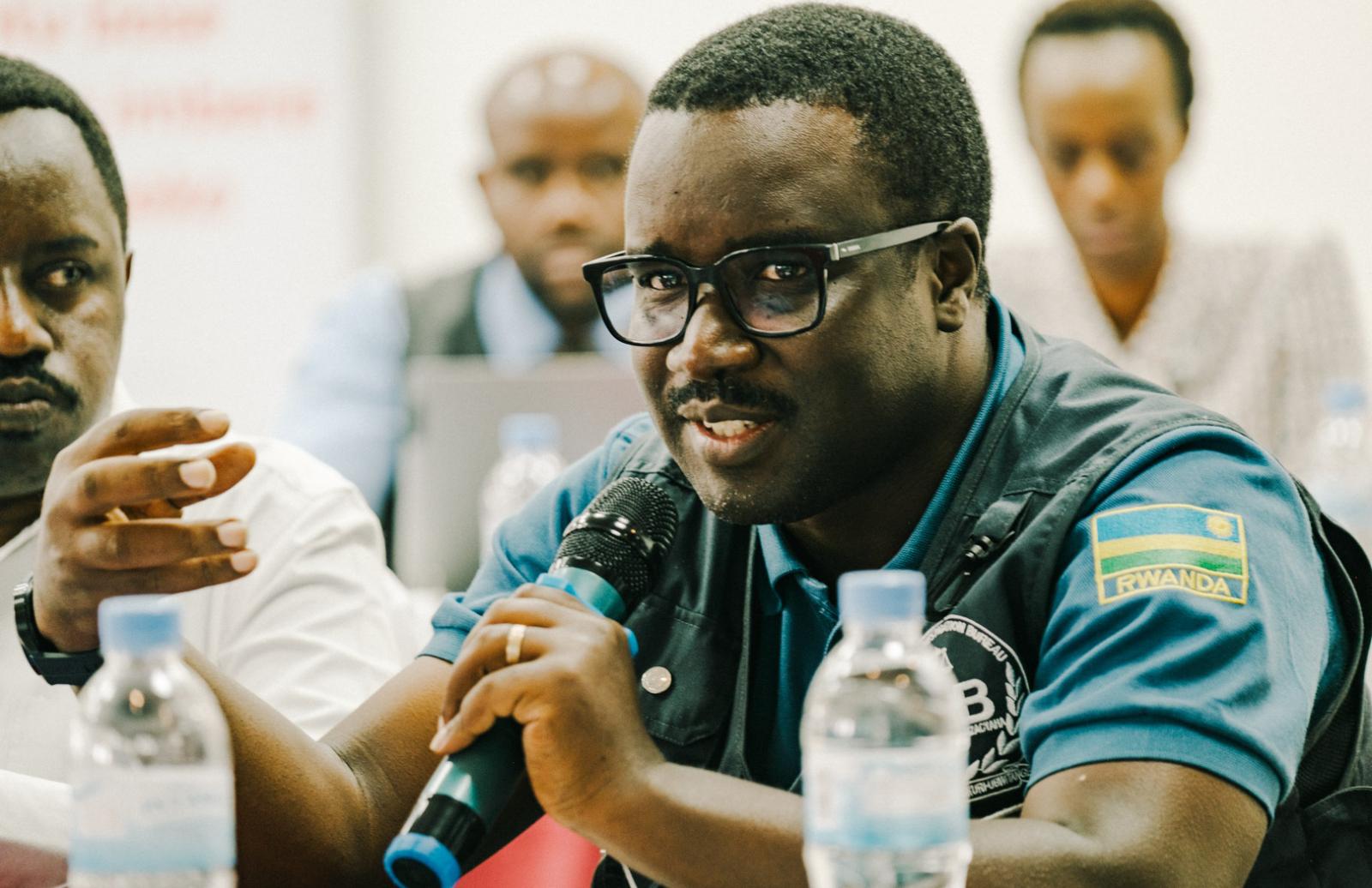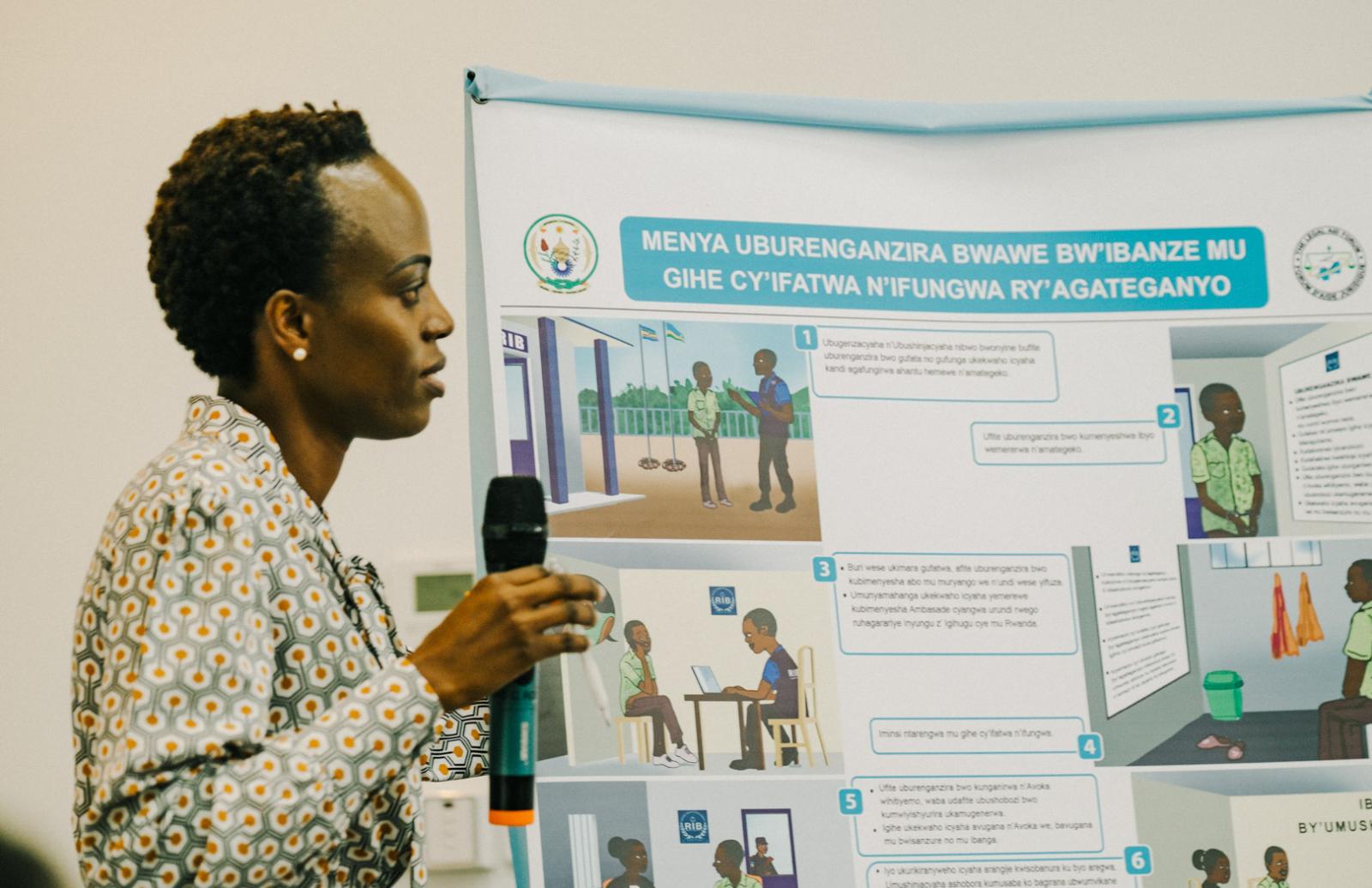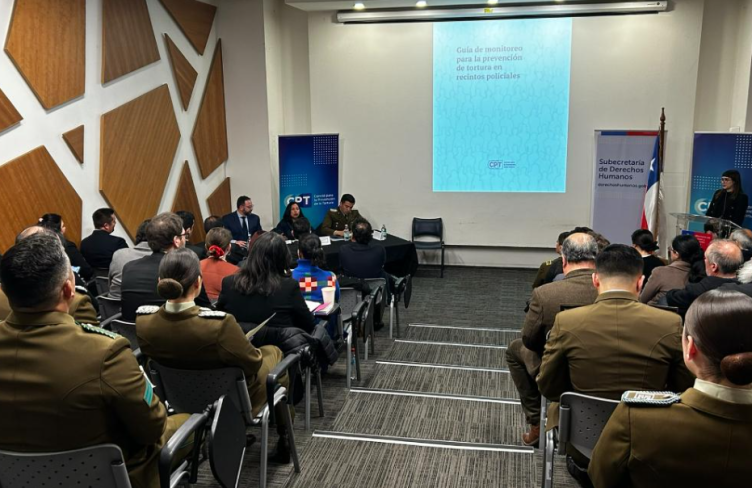
Building a shared commitment to implement the Méndez Principles on Effective Interviewing in Rwanda was the focus of a national roundtable involving government representatives, law enforcement officials, civil society organisations and the national human rights institution.
The one-day meeting, led by the APT in partnership with the National Commission for Human Rights of Rwanda (NCHR) and Legal Aid Forum Rwanda (LAF), was an opportunity to discuss practical measures to strengthen safeguards in Rwanda’s criminal justice system, building on wide-ranging policy reforms approved by the national cabinet in September 2022.
These reforms are likely to include updated procedures and practices, as well as new legislation that will include considerations of diversion and sentencing. We all need to work together to see where the gains in protection are and where the Méndez Principles can address those gaps.
Ben Buckland, APT Senior Advisor on Oversight, began by presenting the six Principles in detail and explained how the legal safeguards they include are reflected in Rwanda's Criminal Procedure. A key focus of his presentation was on approaches to implement the Méndez Principles, giving examples of practical measures that are being taken in other countries.
During an open discussion, participants emphasised the importance of formalising the Méndez Principles in Rwanda at the policy level and including them in the domestic legal framework.
Law enforcement representatives also highlighted the importance of incorporating the Méndez Principles in training programmes for officials in charge of investigations and interviews. An officer from the Rwanda Investigation Bureau noted: "The Principles could provide added value to our curriculum. Science is key to our work and we try as much as possible not to rely on confessions.”
As part of the roundtable workshop, the APT and the LAF launched “Know Your Rights" posters, which will be disseminated across Rwanda to promote pre-trial justice.
The posters seek to raise awareness of legal safeguards for those detained, such as the rights to access legal counsel, to remain silent, and to receive medical care. These safeguards play a key role to ensure fair treatment during the first hours of custody when the risks of torture and ill-treatment are heightened.
"Since it has been made clear that the issue of pre-trial justice concerns not only the rights of an individual but also negatively affects society as a whole, it is our duty to ensure that no citizen suffers the consequences of unfair pre-trial justice,” said LAF Executive Director Me Andrews Kananga.
More than 40 people attended the roundtable discussion, including representatives from the police, the Ministry of Justice, the Rwanda Investigation Bureau, the Rwanda Correctional Service, the Human Rights Commission of Rwanda and civil society organisations working in the justice sector.
Since their launch in 2021, the Méndez Principles have gained increasing recognition, with over 60 States from all regions endorsing them in two UN resolutions. The African Commission on Human and Peoples' Rights has also adopted a resolution at its last session, affirming the importance of the Méndez Principles in preventing torture and ill-treatment in Africa.





